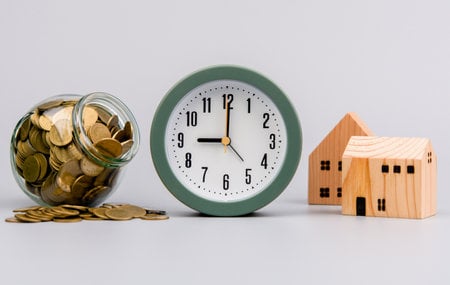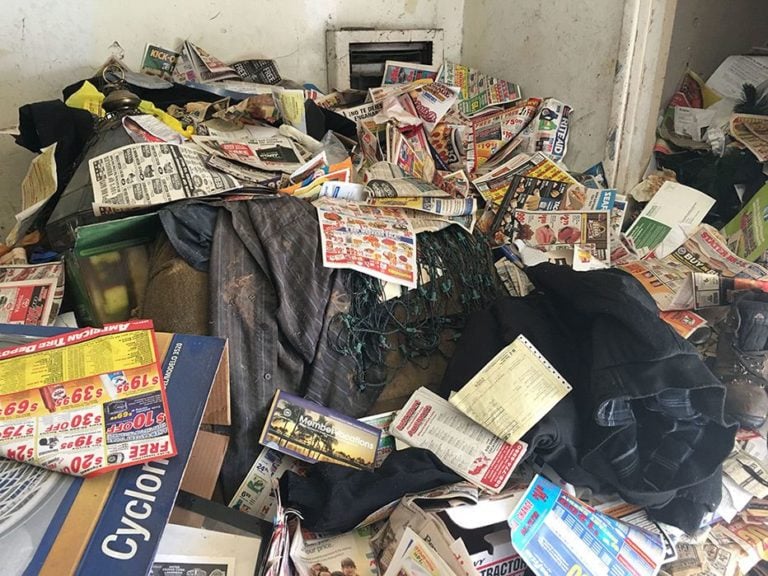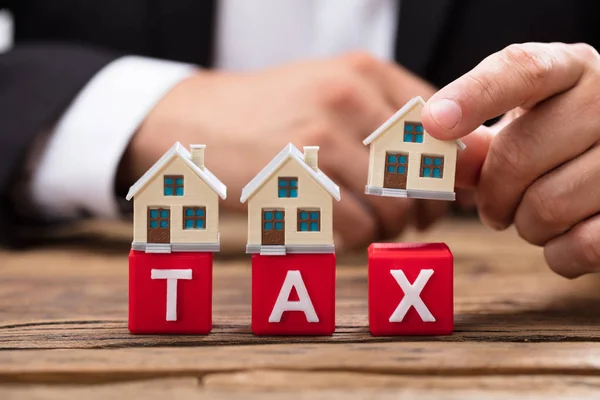How Soon Can You Sell a House After Buying it?
You’d might think that the answer to how soon can you sell a house after buying it is simple, but it’s actually a bit more complex than that.
There aren’t any federal laws that prevent you from selling straight away after a purchase, but a variety of factors, from your mortgage agreement to housing market conditions to your personal circumstances, can influence the optimal timing for selling your new property.
This guide aims to demystify the process and provide clear insights to help you make an informed decision.
Table of Contents
How Soon Can You Sell a House After Buying It?
If you have an FHA loan, for instance, you are required to live in the home as your primary residence for at least one year. Selling before this term could result in penalties.
On the other hand, if you purchased your home with a conventional loan, there may be no restrictions on how quickly you can sell. However, keep in mind that selling a home also involves costs, such as agent commissions and potential home preparation costs.
It’s also worth considering the emotional and practical implications of selling a home soon after buying. Moving house is often considered one of the most stressful life events, and doing it twice in quick succession can be particularly taxing.
Therefore, unless necessary, it might be worth settling into your new home for a while before considering selling.
No matter if you’ve just purchased your home or have held it for a number of years, we buy houses for cash in Southern California. Contact us today to find out more.
What Are My Options if I Just Bought a House and Want to Sell It?
Let’s say that you’re dead set on selling a house you just bought. What are your options?
In this section, we’ll explore three potential scenarios and discuss the pros and cons of each.
Sell the House to Socal for Quick Cash
Your first option is to seek out companies that buy houses for cash, like us here at SoCal. This is often the quickest and most convenient option, especially if you need to sell urgently due to unforeseen circumstances.
The biggest advantage of selling for cash is that it eliminates the traditional home sale process with all its headaches and uncertainties. You can receive a fair offer within days or even hours, and typically close on your timeline without having to deal with showings, repairs, or other hassles.
If you’re considering selling your home and want a straightforward, hassle-free process, SoCal Home Buyers is here to help. Our experienced team understands the complexities of the housing market and is committed to making your experience as smooth and stress-free as possible.
Contact us today and let us handle the details so you can move forward with confidence.
List the House on the Market via a Real Estate Agent
This is usually the most profitable option, as you’ll have the opportunity to attract multiple buyers and potentially receive higher offers.
However, this route also requires more time and effort. You’ll need to prepare your home for sale, handle showings and open houses, negotiate with potential buyers, and pay agent commissions. It can also take several months or longer to find a buyer and close the sale.
If you’re looking to sell quickly, this may not be the best option for you. But if you have the time and resources to invest in selling your home on the market, it could potentially bring in a higher profit.
Rent Out the House
Renting the property can be a good choice if you:
- Are not in a financial position to absorb the costs of selling, or
- Want to keep the property as an investment
However, becoming a landlord also comes with its own set of responsibilities and potential challenges. You’ll need to find reliable tenants, handle maintenance and repairs, and navigate legal issues such as rental agreements and eviction processes.
Wait and Sell at a Later Date
This may be the best option if you want to build more equity in your property or if market conditions are unfavorable for selling. After all, selling under market value will not only result in a lower profit, but it could also reflect poorly on your financial planning abilities.
With that said, keep in mind that while waiting may result in a higher selling price, it also involves ongoing costs such as mortgage payments, property taxes, and maintenance. You’ll also need to consider any potential changes in your personal circumstances that may affect your decision to sell.
Ultimately, selling your home soon after buying it is a personal decision that depends on various factors. Consider your financial situation, goals for the property, and personal circumstances before making a choice.
Reasons for Selling a House Shortly After Buying
Now that we’ve discussed the potential options, let’s take a look at some common reasons why homeowners may want to sell their house soon after buying it.
Understanding your underlying motivation for selling your house soon after buying can help you make a more informed decision.
Change in Financial Situation
A change in one’s financial situation can be unexpected and may necessitate a quick sale.
For instance, you:
- Could become unemployed
- Be faced with a medical emergency
- Have to deal with other unforeseen expenses that put a strain on your finances
In such scenarios, the equity in your home can become a lifeline, providing you with the funds you need to maintain your financial stability. However, remember that selling a home involves costs, so it’s important to weigh these against your potential gains.
Change in Family Situation
For example, you may have bought a house with your partner and later experience a divorce or separation, necessitating the sale of your shared property.
In these scenarios, the home purchased may no longer fit the changed family dynamics and selling may be the most sensible solution.
Remember, it’s perfectly normal to have your needs and circumstances change. What seemed like a perfect fit at the time of purchase might not always stand the test of time.
Buyer’s Remorse
Sometimes, the excitement of purchasing a new home can quickly fade, replaced by a feeling of regret or dissatisfaction, commonly known as buyer’s remorse.
This can happen for a multitude of reasons:
- The house isn’t quite what you imagined it would be
- You’ve discovered hidden issues after moving in
- The neighborhood doesn’t meet your expectations
- The commute to work is longer than you anticipated
Buyer’s remorse is a perfectly normal feeling and happens to many homeowners.
However, it’s essential to distinguish between minor disappointments, which can be resolved over time, and serious issues that significantly impact your quality of life. If it’s the latter, selling may indeed be the right path to take.
High Market Demand
If you’ve found yourself in the middle of a hot seller’s market, selling your house shortly after buying it may seem like a great opportunity. In a seller’s market, demand for homes often exceeds the supply, resulting in higher home prices and fast-selling houses.
This scenario can be particularly appealing if you’re looking to turn a profit quickly on your recent investment.
However, while selling in a hot market might seem like a no-brainer, there are some factors you should carefully consider. For instance, while you may sell your current home for a high price, you’ll likely also have to buy your next home in the same expensive market.
Relocation for Work or Personal Reasons
If you’re faced with a relocation, selling your home can provide the funds needed for your move and help you start fresh in a new location.
Yet, it’s essential to weigh the costs associated with selling your home against the cost of relocating and purchasing a new home. The decision should be made after careful consideration of all these factors.
Remember, it’s perfectly okay to make changes when unexpected turns in life call for them. Your home should serve your needs and lifestyle, and sometimes, that means making tough decisions like selling.
Health Emergencies
Whether it’s a personal health crisis or the need to care for a loved one, these circumstances might necessitate a swift change in your living arrangements.
Selling your home can provide the much-needed funds for medical expenses or to move closer to medical facilities. It’s essential in such situations to act decisively and consider all options, including selling your home.
No matter your reason for selling your home within a year, two, or even more, we’ll give you a fair cash offer if you’re in South California. Contact our team today for more information.
The Consequences of Selling a House You Just Bought
Selling after you haven’t lived in the house for long can bring the following consequences:
- Lender penalties
- Negative buyer perception
- Capital gains tax
- Emotional toll
- Legal complications
Lender Penalties
These are fees imposed by your mortgage lender if you decide to pay off your mortgage before the end of its term. Such penalties are usually written into the mortgage contract as an incentive for borrowers to stick to the agreed upon term.
While these fees can vary greatly depending on your mortgage agreement and lender, they typically equate to a few month’s worth of interest payments.
This unexpected cost might add to your financial burden, which is why it’s important to revisit your mortgage contract or consult with a financial advisor before making the decision to sell.
Negative Buyer Perception
Chances are, if you’re selling shortly after buying, potential buyers might wonder why. This can raise concerns and make them think twice about making an offer.
They may assume that there is something wrong with the house or the neighborhood, which could negatively impact your chances of selling quickly and for a desirable price.
To combat this perception, it’s important to be transparent and upfront about your reasons for selling. If it’s a genuine, uncontrollable circumstance (such as a job relocation), clearly explaining this to potential buyers can help ease their concerns and make them more comfortable with making an offer on your home.
Capital Gains Tax
The profits you make from selling your primary residence are typically exempt from capital gains tax, thanks to the Principal Residence Exclusion rule.
However, this rule has specific requirements that must be met, one of which is owning the house for at least two out of the last five years, so experts recommend you don’t out your home on the market within two years of buying it to avoid this.
Under section 121 of the tax code, you may be exempt from paying capital gains tax on the first $250,000 profit from your home sale, or up to $500,000 if you file your taxes jointly. This exemption applies as long as you’ve used your home as a primary residence for at least two years.
It’s important to note that capital gains taxes can be complex, and this rule might not apply to everyone’s situation. Therefore, before making a decision to sell based on this two-year rule, it’s crucial to consult with a tax professional who can provide guidance tailored to your specific circumstances.
Additional reading: penalty for selling house before 1 year
Emotional Toll
While selling a house may seem like a logical solution, it’s also essential to consider the emotional impact it can have on you and your family. Moving is stressful, and selling a house that you recently bought can add an extra layer of emotional strain.
It’s important to take into account the attachment and memories you may have formed in your home, as well as the potential stress of finding a new place to live and moving again.
Ensure that you are mentally and emotionally prepared for these challenges before making the decision to sell.
Legal Complications
For example, if you are selling your home for a higher price than you bought it for, and the buyer discovers any defects or issues with the house, they may take legal action against you.
Plus, if you’re dealing with title issues or other legal matters, those can delay the sale of your home and add even more stress to the process. For more information on how to deal with this hurdle, we recommend checking out our guide on how long to resolve title issues.
How Long After Buying a House Can You Sell It Without Negative Consequences?
When it comes to selling a home after purchasing it, many experts refer to the “five-year rule”. This rule suggests that a home should typically be held for at least five years to appreciate enough value to offset the costs of buying and selling, even if it’s just to break even.
Calculating Profits or Loss if You Decide on Selling a House Right After Buying It
To understand whether selling a house right after you buy it will result in profit or loss, it’s necessary to calculate the associated costs:
- Original down payment: This can be as high as 20% of the total cost, depending on your mortgage terms and credit history.
- Real estate commission: Can vary considerably, depending on the agent, the area you’re in and the current market conditions
- Moving expenses: May include hiring professional movers, renting a moving truck, packing materials and storage fees. These can add up to several thousand dollars, depending on the distance of the move and the amount of belongings you have.
- Capital gains taxes: This can be as high as 20% of the profit you make from selling your home
- Closing costs: Can include fees such as appraisal, inspection, title search, and attorney fees. This can be as high as 10% of the selling price.
- Mortgage balance: This amount can vary depending on how long you’ve owned the home and your monthly payments.
Subtract these amounts from the selling price of your home and then compare it to the original purchase price. If the figure you get after subtracting the selling costs from the selling price is greater than the initial purchase price, you’ve made a profit. If it’s less, you’re going to lose money.
Let’s consider an example where the original purchase price of the home is $300,000 and the selling price is $320,000, one year later in an average market scenario.
| Expense | Cost |
| Capital gains tax (20%) | $4,000 |
| Closing costs (10% of $320,000) | $32,000 |
| Moving costs | $3,000 |
| Real Estate Commission (around 5% of sales price) | $16,000 |
| Remaining mortgage balance | -$240,000 |
| Original total costs from purchase (5% of $300,000) | $15,000 |
| Original down payment (15% of $300,000) | $45,000 |
| Total expenses for buying and selling | $355,000 |
Total Loss (total expenses – selling price) = -$35,000
In this scenario, selling the house after just one year results in a significant loss.
How Quickly Can You Sell a House After Buying?
The time it takes to sell a house can vary significantly based on a multitude of factors, such as the current real estate market conditions, the condition and location of your home, as well as the asking price, on average it may take between two to three months from listing to close the deal.
In a seller’s market, where demand exceeds supply, homes can sell within days. This is often observed when there is a high demand for properties in a specific neighborhood or city, or when there is limited inventory available. Buyers in these situations may be competing with each other, leading to faster sales.
On the other hand, in a buyer’s market, where there is an excess supply of homes compared to the demand, it may take several months to sell a house. Buyers have more options to choose from and can take their time to find the right property at the right price. Sellers may need to be more patient and flexible with their pricing and negotiation strategies.
For more insights into this market dynamics, check out our dedicate guide on how long does it take to close on a house with cash.
How Quickly Can I Sell My House if I Work With You?
If you’re in Southern California and want to sell your house fast, look no further! As one of the best home buying companies in the region, we’ve helped countless homeowners sell their homes quickly and hassle-free.
Here’s how it works:
- Give us a call at 951-331-3844 — or fill out the short form below to request your fair cash offer.
- Await our prompt response to discuss your property in greater detail and schedule a one-time inspection that allows us to offer the highest amount possible.
- At the time of the inspection, our in-house inspector will quote you a fair cash offer, and if you’re on board, you can consider your home sold!
- Choose your closing date, and leave the rest to us. You can choose payment via check or wire transfer. It simply doesn’t get any easier.
How Soon After Buying a House Can You Sell It? Our Conclusion
Deciding when to sell your house after purchasing it hinges on a variety of factors, many of which are personal.
However, as a general rule of thumb, decide to sell after five to seven years to maximize potential financial gain, and to spread out the costs associated with the purchase and sale of the property over a longer period of time.
The housing market fluctuates and there are no guarantees, but real estate has historically proven to be a solid long-term investment.
That said, life doesn’t always stick to a plan, and you may need to sell quicker, depending on your circumstances.
FAQs
Can You Sell a House Within 6 Months of Buying It?
Yes, selling a house 6 months after buying. However, keep in mind that selling a house shortly after purchasing it may lead to financial loss due to costs such as capital gains tax, closing costs, and moving expenses. It’s essential to consider all factors before deciding.
Can You Sell a House You Just Bought?
Yes, you can sell a house that you just bought. However, it’s important to consider that selling so soon after purchasing may lead to potential financial losses. These losses can arise from various aspects, including closing costs, possible capital gains tax, and other related expenses.
How Soon Is Too Soon to Sell a House?
Selling a house “too soon” is generally within the first year of ownership. This is primarily due to the substantial costs associated with buying and selling a property. However, individual circumstances can influence this timeframe, so it’s essential to evaluate your specific situation before coming to a decision.










